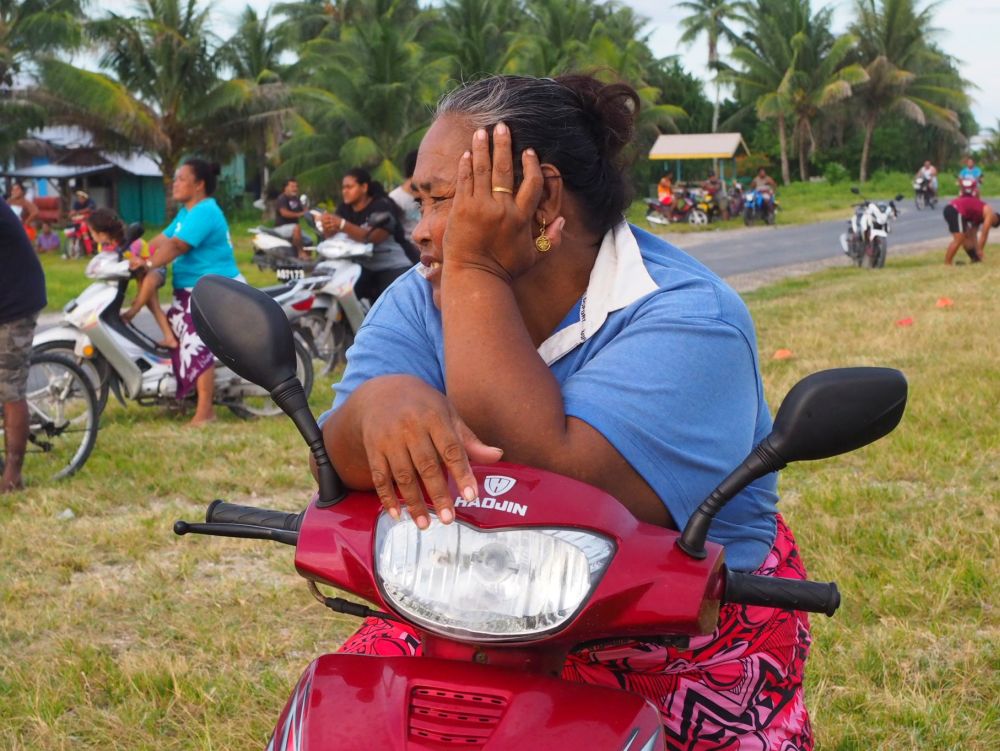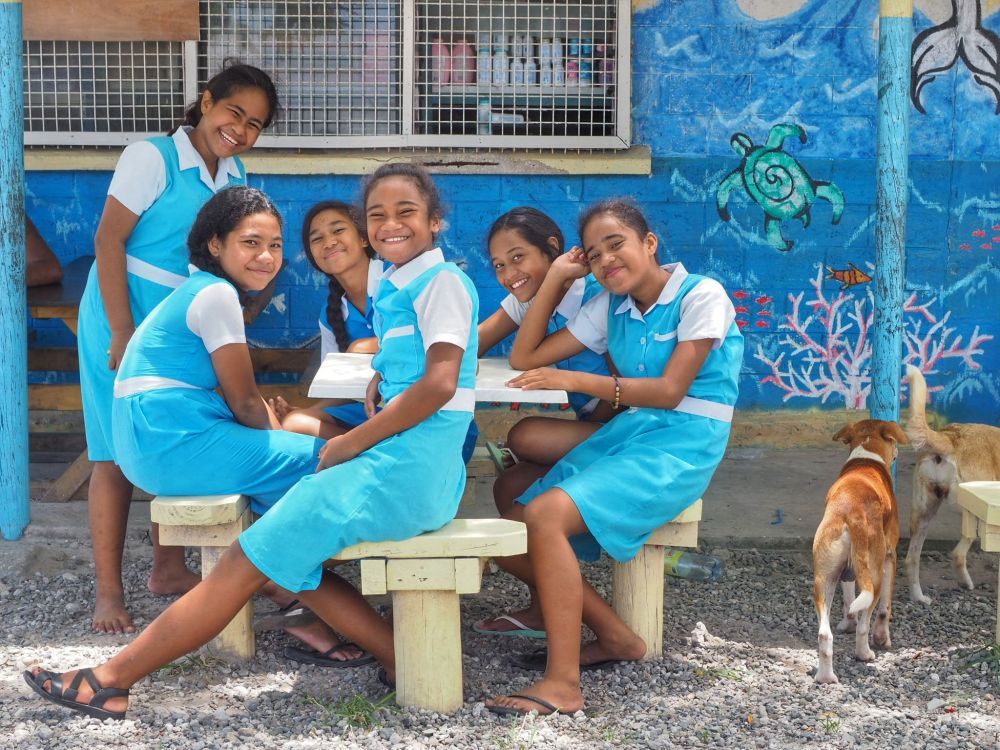I went to Fiji’s tiny airport a little apprehensive as to whether the flight to Tuvalu would even take off. After all, according to internet sources, it doesn’t matter if you have a ticket, the flight there is one of the most unreliable in air travel.
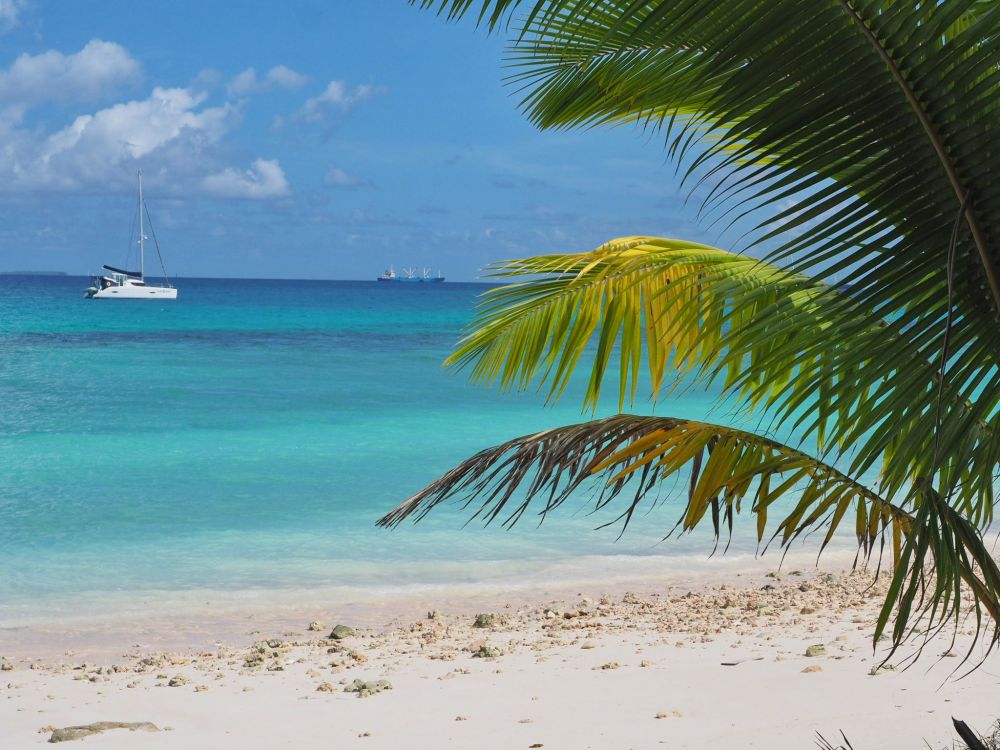
I asked the lady at the counter if they were leaving that day. “Sure,” she said, annoyed. “It’s only a rumour that we cancel flights frequently. It doesn’t happen that often, it’s more common to leave luggage behind because the plane is overloaded with cargo”. I didn’t even dare to complain, but I moved the essentials into my small bag to make sure they went with me. Apart from that, I looked at my boarding pass with optimism, as the Tuvalu airport code is FUN (Funafuti).
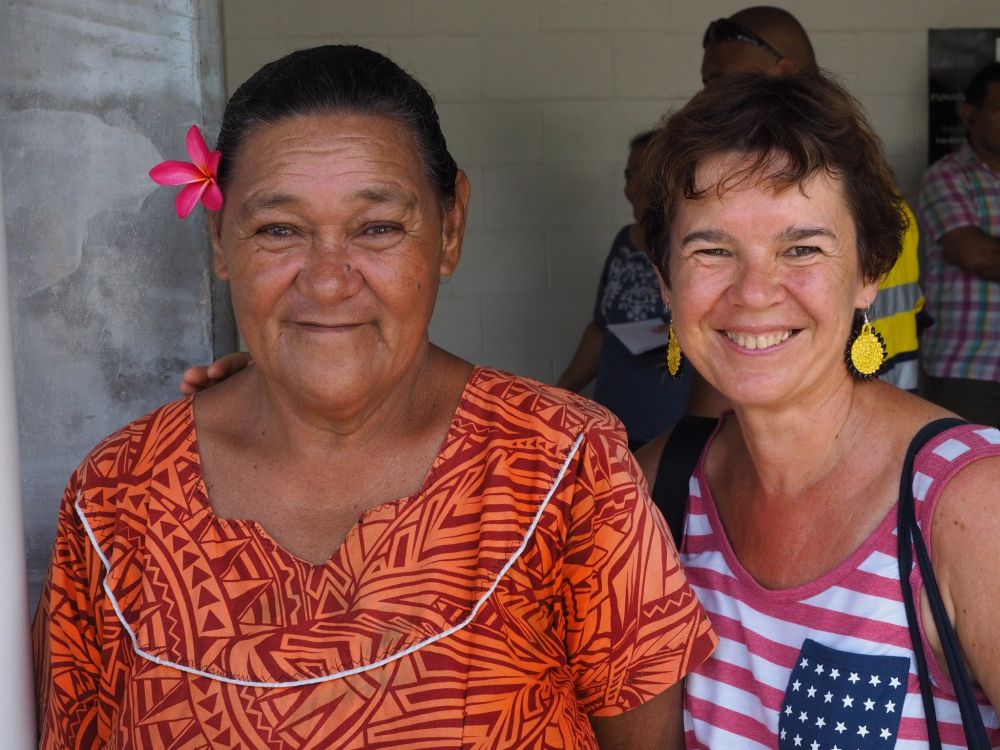
This was just the first of a series of surreal conversations and events. The whole trip to Tuvalu was like a dream – strange, challenging, but a real adventure in every sense. And what brought me to this unknown landscape? The very unfamiliarity of it. I stumbled over my decision for a long time, as it’s very expensive to get here and there’s no promise of any famous attractions to make the trip worthwhile. But I felt an inexplicably strong urge to go to a place that didn’t immediately conjure up dozens of boring photos. I wanted to experience again what I had last experienced in the eighties, arriving somewhere and wondering at the world around me. It’s harder and harder to do that nowadays, with hundreds of photographs of almost every country on the internet every day, but if you hear the name Tuvalu, Kiribati or even Nauru, you probably can’t recall any of them – and that’s what excited me: the joy of discovery.
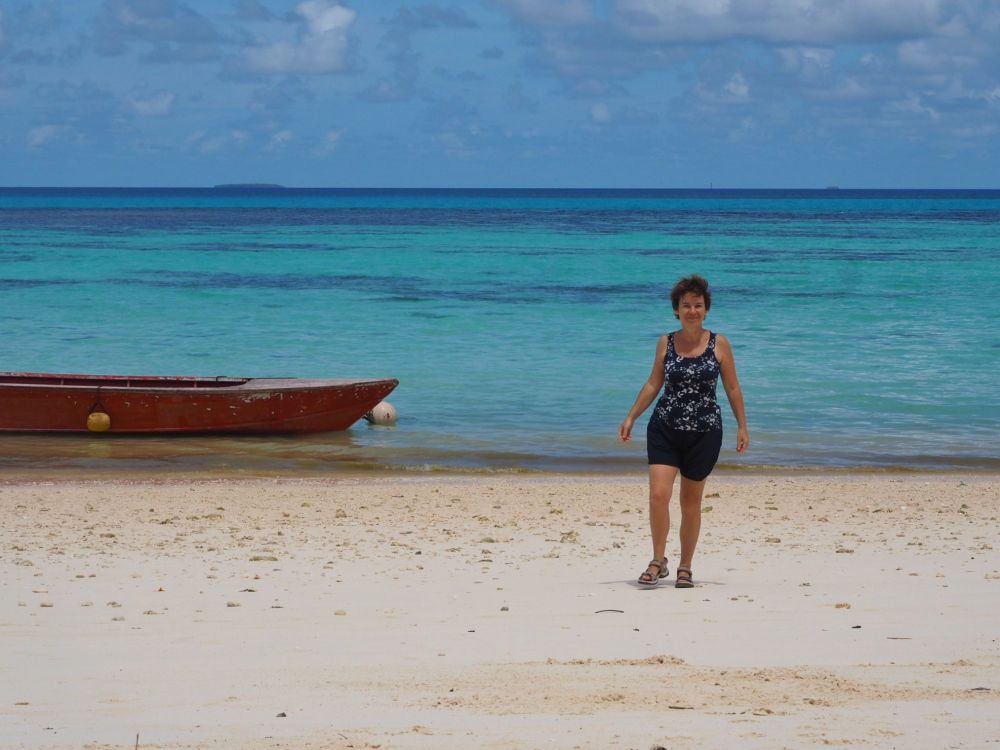
As we approached, the tiny country was barely visible out of the vast blue ocean. We were gliding quite close to the water, and I thought we were landing there, when the runway finally appeared. As we taxied past the surprisingly close houses, locals watched the plane from their verandas. The arrival of three flights a week is still an event in the capital – I don’t know when I was greeted by people waving happily at my plane.
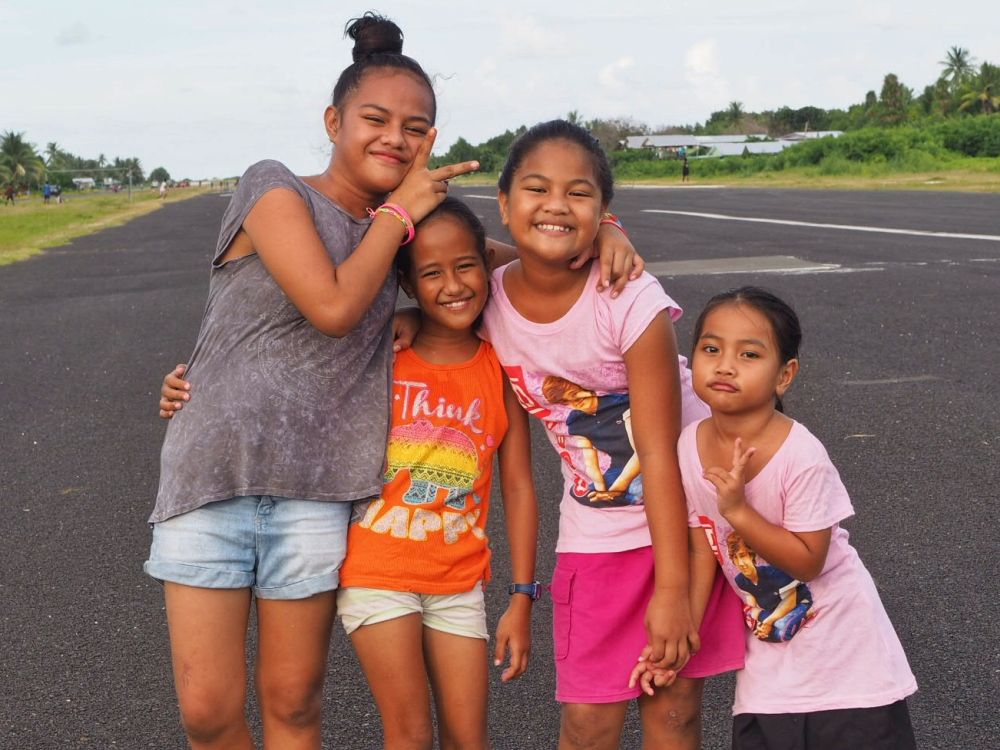
Tuvalu is officially the least visited country in the world, so I was expecting to be a white man on my own. I was a little surprised that there were quite a few other white passengers besides me, but as I waited for my luggage to arrive, everyone asked what they were doing here, and it turned out that everyone else was here for work or to visit relatives. So it was safe to feel special: I certainly felt like the only tourist in the country that day!
At the airport, a lady me from my hotel led me to a car. We loaded my luggage, I got in and sat back comfortably in the cool, air-conditioned car. About 18 seconds later, we rolled four houses away to hotel.
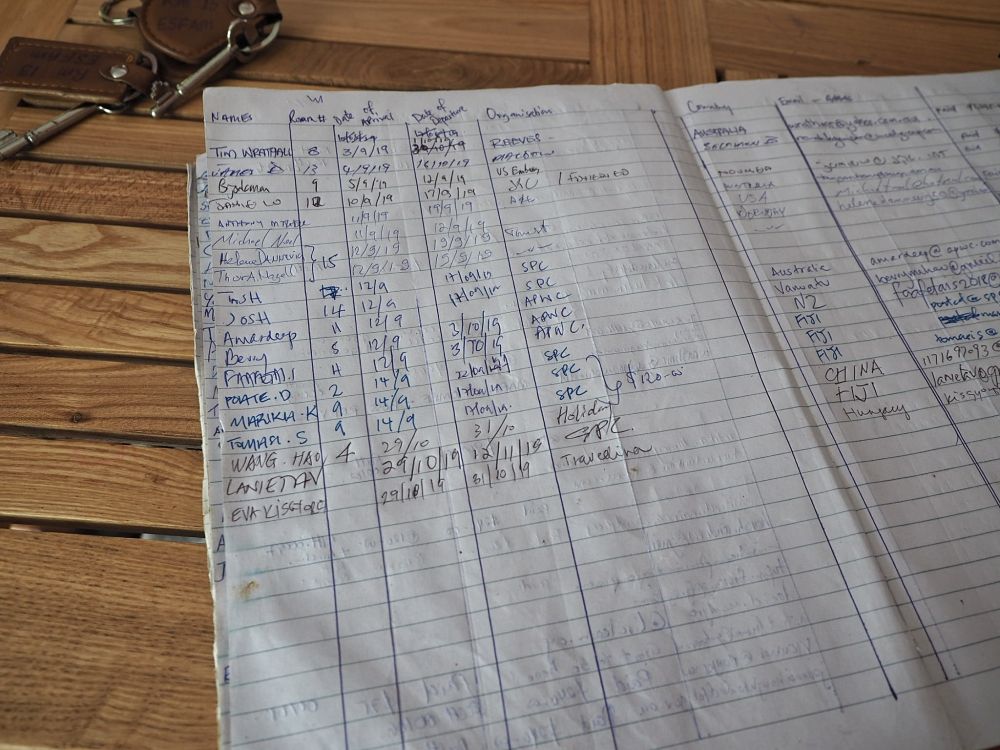
Tuvalu really takes you back in time. There is no tourist information, no tour companies and no guidebooks to rely on. There are no ATMs and nowhere do they accept credit cards, only cash payments are common. It’s just like travelling thirty years ago, when you had to ask the locals where to go and where to eat. Everyone is friendly and speaks English, so no problems. Perhaps the only nuisance is the scorching heat and the five cockroaches I found in my bathroom in the first hour. But we’re in the tropics, it would be surprising if we weren’t. The first two I desperately called the staff to get rid of immediately, and then I routinely pushed them out.
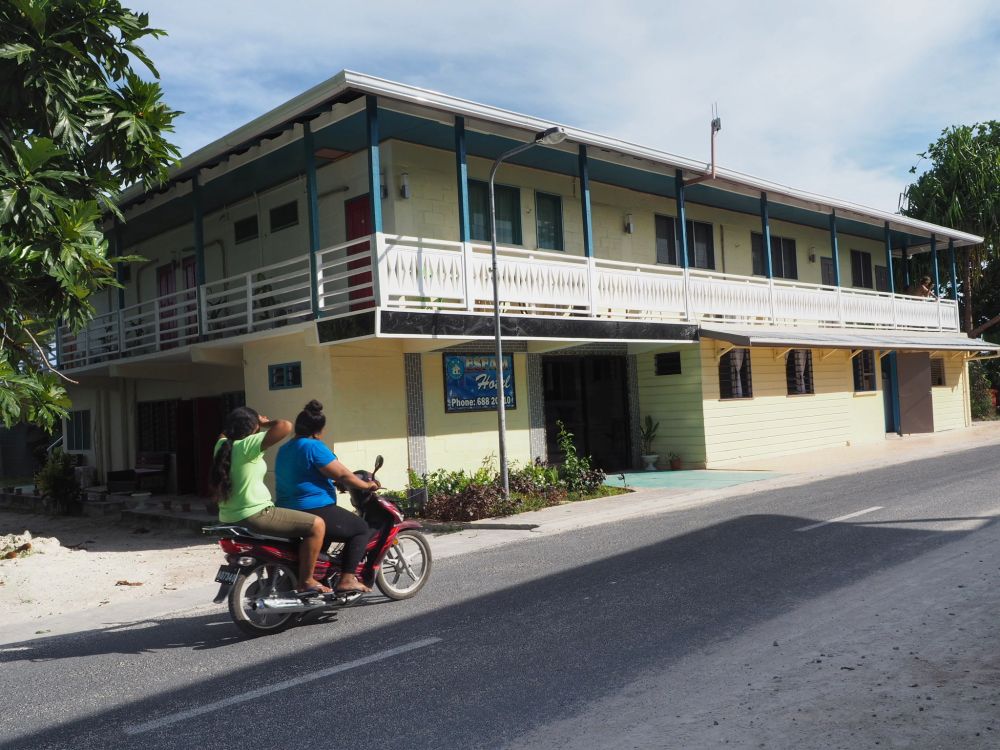
The airport and our guesthouse were located roughly in the middle of the country’s main island, where the elongated headland widens out a little. Tuvalu, which lies about halfway between Hawaii and Australia, is made up of three islands and six coral reefs. One of the reefs, Funafuti, is where we are now, home to more than half of the country’s population (about 11,000 people). The coral reef is about 25 km long, it seemed a bit ambitious to walk across in the scorching heat, but at least I tried.
I headed south first, passing the government building and then the Prime Minister’s residence. Here, to my surprise, I found no fence or guards, just a big “Hello” sign. It turned out that there had been a change of government a few months ago and the new Prime Minister had not yet moved in, the building was being renovated for him, but there was not usually much fuss about it anyway.
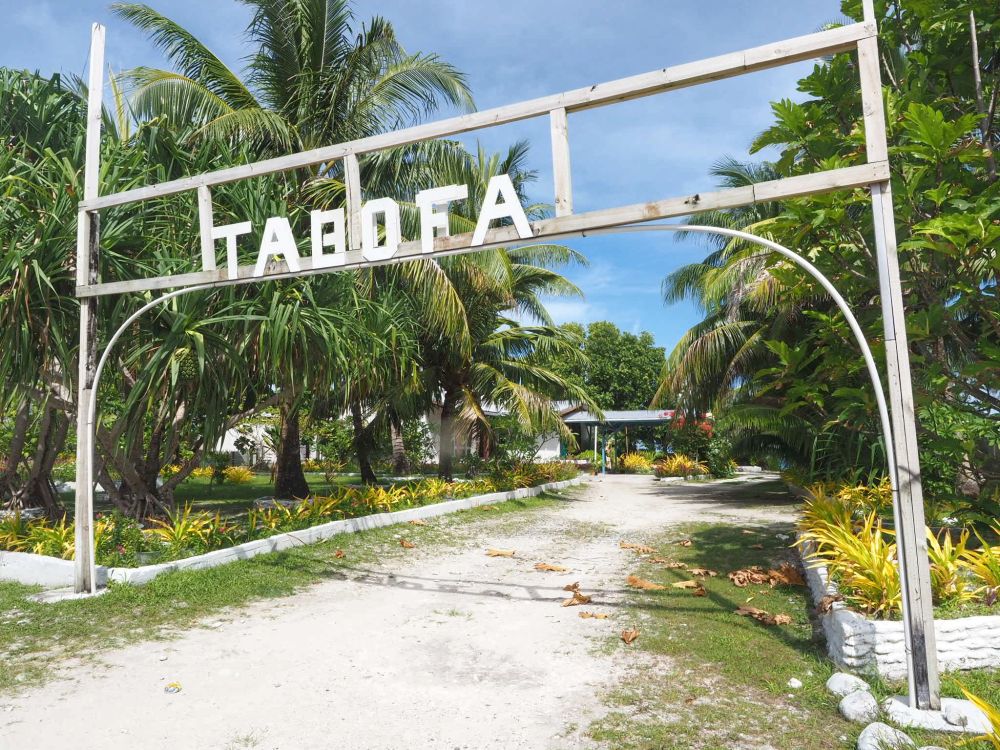
Next came the post office, perhaps the country’s number one tourist attraction. They issued beautiful stamps with a wide variety of themes, from cats to Elvis. But it wasn’t just this that struck me, it was the confidence that greeted me. The salesgirl asked if I needed any help. When she found out that I just wanted to look around, she simply left the room and went to some room in the back. I was there with the entire stock, and her own handbag was just thrown on her desk. Apparently it never occurred to her that I’d touch anything.
Why should he be afraid? There is almost no crime on the island. For one thing, there’s nowhere to run away to, and for another, pretty much everyone knows everyone. There are six people in prison at the moment, but two of them are foreigners: they came from Fiji as sailors and got into a fight with a Korean shopkeeper who was living here and died of his injuries. The other four prisoners are locals, although prisoner is perhaps not the best term, as they are free to move around. In the mornings they work in the garden, but in the afternoons they are free to go fishing. There’s enough stigma here about being in prison, there’s no need to punish them more.
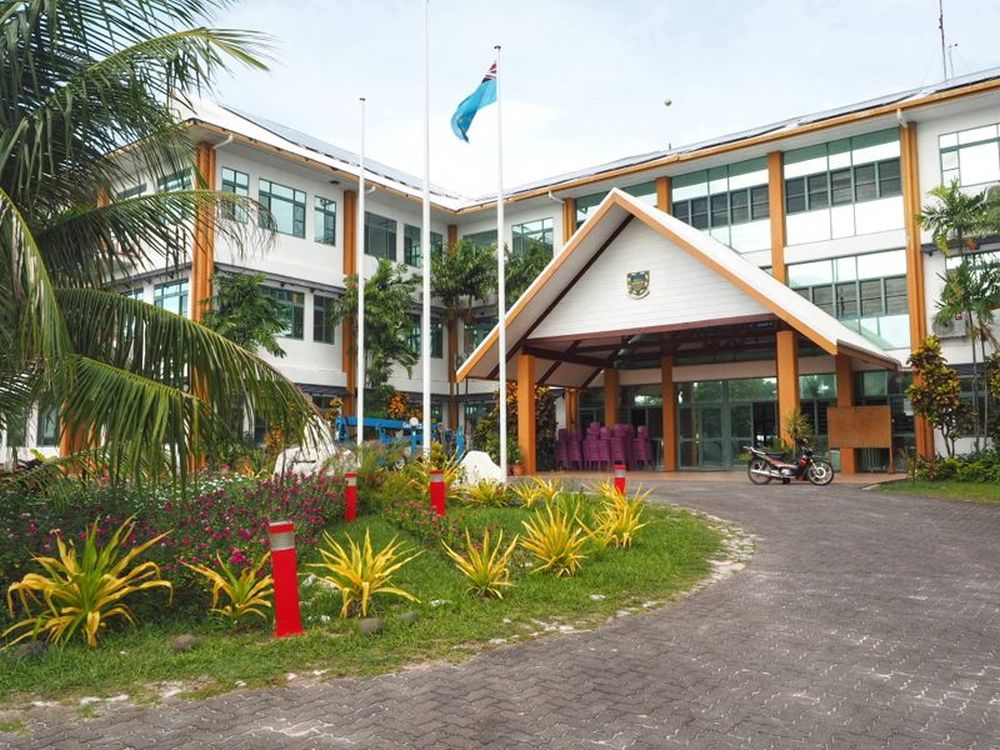
I learned this from the Prime Minister’s bodyguard, his driver, who I also spoke to. I was checking out the brand new conference centre when I saw a smart car. “Is that the Prime Minister’s?”, I joked to the man in uniform cleaning the car. “Yes,” he replied with a smile. As it turned out, I had hit it, and my casual interlocutor not only washes the car, but also works as a chauffeur, and even accompanies the current prime minister on all his foreign trips as the police captain in charge of his and usually the government’s security. I also learnt that he has been in this position for 28 years, but not for much longer: he wants to follow his children who are studying in Australia.
He was the only one of all my interlocutors who would have preferred to live somewhere else. Everyone else claimed that, although they had been abroad, they could only imagine their life on Tuvalu. For example, Lafita Nofoaiga, who works at the Ministry of Foreign Affairs and picked me up in her car this afternoon. After I reached the southern tip of the island, I hitched a ride with a lady on a motorbike back to my accommodation and headed north. I was only a third of the way there when I gave up on walking the whole island – the heat was killing me. A lovely couple pulled up next to me, who were only driving their car close by, but when they found out I wanted to get to the end of the island, they decided to be my occasional guides. There is never a rush here – and being a tourist guide is more exciting than anything!
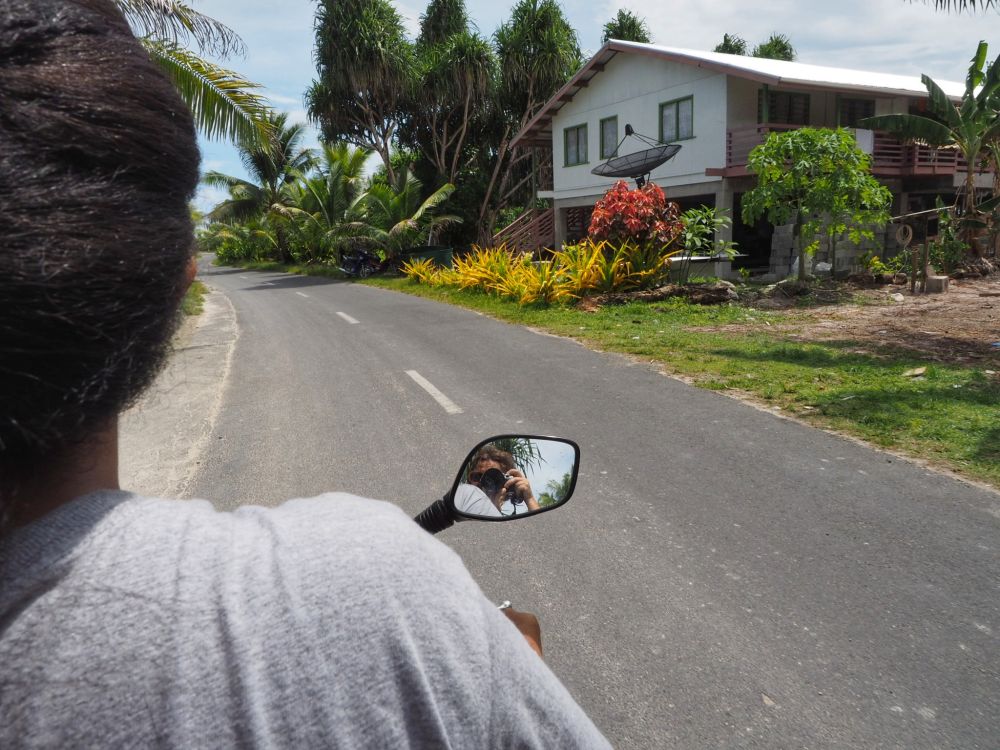
As it turns out, my occasional guide studied in Germany for years, but has been travelling abroad for work ever since. I wondered if she had ever wondered if it would be better to live elsewhere. “No”. came the firm reply. I wondered what it was about her small country that made her so attached to it, so I asked her. “There is no poverty here”, came the surprising reply. We passed tiny huts and were, in our terms, light years away from economic powerhouse Germany. Surprised, I asked her what she meant. “If you don’t have a job in Germany, you have to beg on the streets. That can’t happen here. Half of the population has no job, but nature supports them: there are fish in the sea, taro in the ground and coconut in the trees. If someone is sick or for any other reason cannot take care of themselves, there is the extended family, the community, they always help”. I sat there for minutes, stunned at how different our concepts of poverty and wealth are…
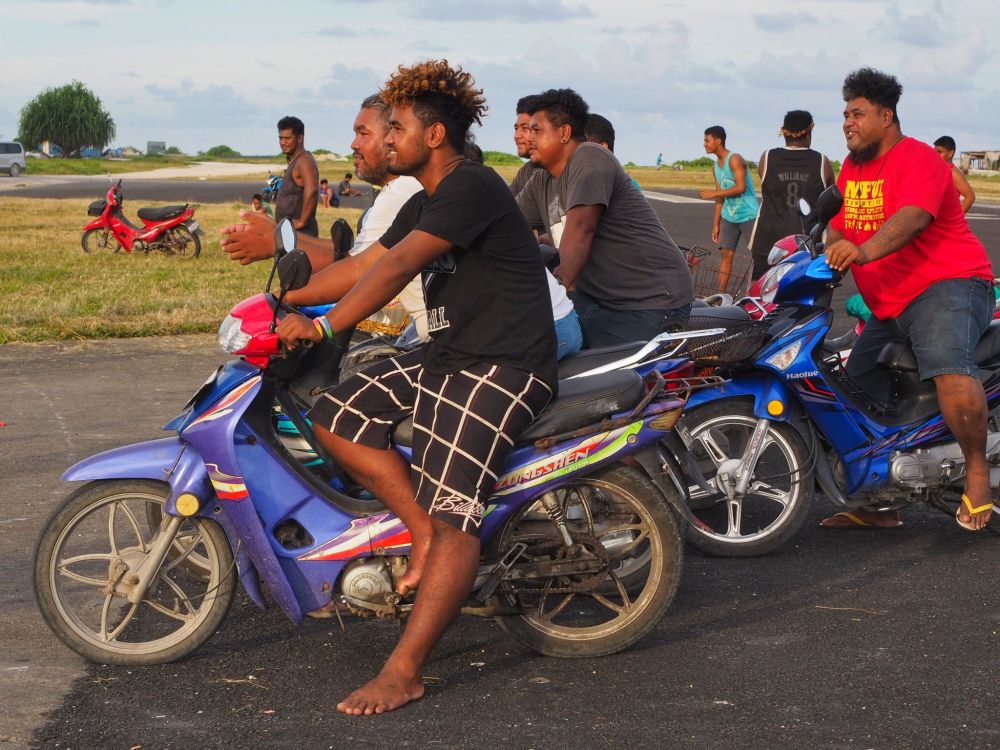
“Life is simple” is what I heard over and over again in Tuvalu, but also in other countries in the region, Kiribati, Nauru and the Solomon Islands. At the time I may not have had a sense of what they meant, but it became clear the first day after I arrived home. My password on my internet bank had expired, the remote control in our garage had run out of battery, and I was sweating blood by the time I submitted a simple tax-form online. We are full of technology, but I am not at all sure that it has made our lives any better.
But back to Tuvalu. I also asked my new friend in the foreign affairs department what she would like to change. She wants the country to be on a little more solid ground and a little bigger. There are many projects on the island to that end. When Tuvalu hosted a major conference for the region’s leaders in August this year, a new area of land was reclaimed from the sea and the brand new conference centre was built here. Buoyed by the success of the expansion, they are looking to add more land, both large and small, to the island, or at least to strengthen its coastline. They are also keen to attract more tourists to the island to create jobs for local people. There is also the problem of a shortage of certain professions. There is only one pharmacist in the whole country, for example, and he is old – if he is gone, there will be a specialist only in Fiji.
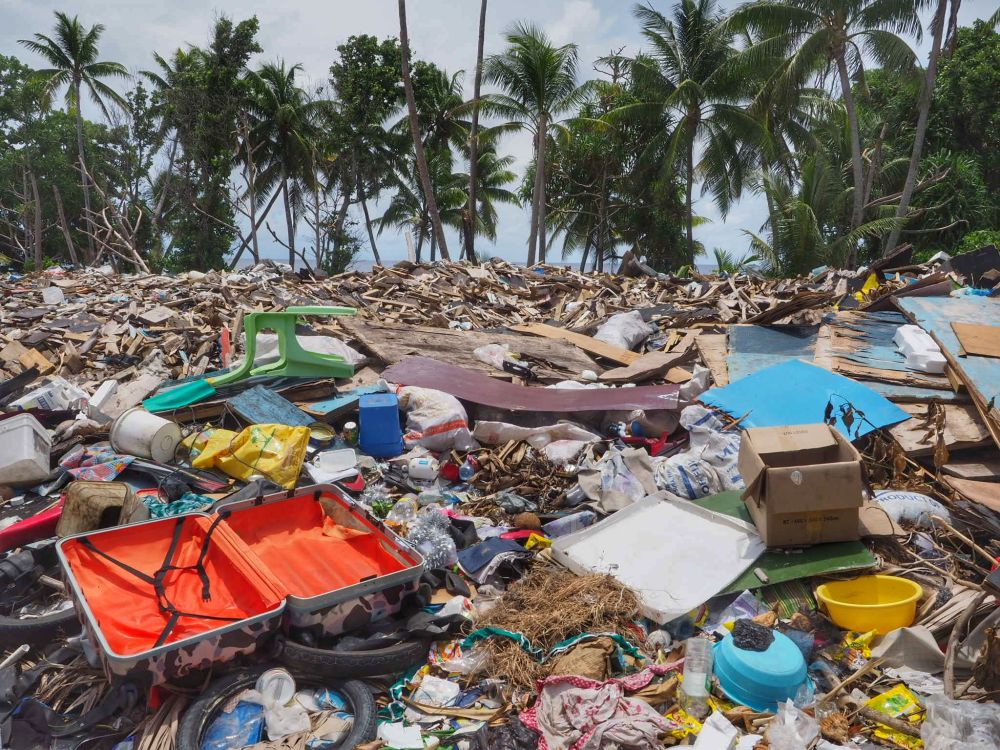
There are quite a lot of foreign professionals working on these issues, and they are the main guests in the tiny country’s only state hotel and two private guesthouses. At breakfast time, everyone exchanged a few words with the others, as if it were a twist of fate that we were guests in Tuvalu. “What program are you here for?” – asked a Canadian lady wearing a light, elegant summer dress. “I’m a tourist,” I replied. I don’t want to over-dramatise the situation, but indeed everyone’s coffee spoon stopped in their hands and they turned to me with astonished eyes, “As a tourist?!”
I really enjoyed all the conversations, with the locals and the foreign consultants working here, but what really stuck with me about this little island was the sports craze in the afternoon. And they don’t just go there to play, but also to sleep on hot summer nights. They take out a mattress or just a folded-up cardboard box and spend the night in the “million-star hotel”. It’s too hot in the tiny houses, and there’s some wind.
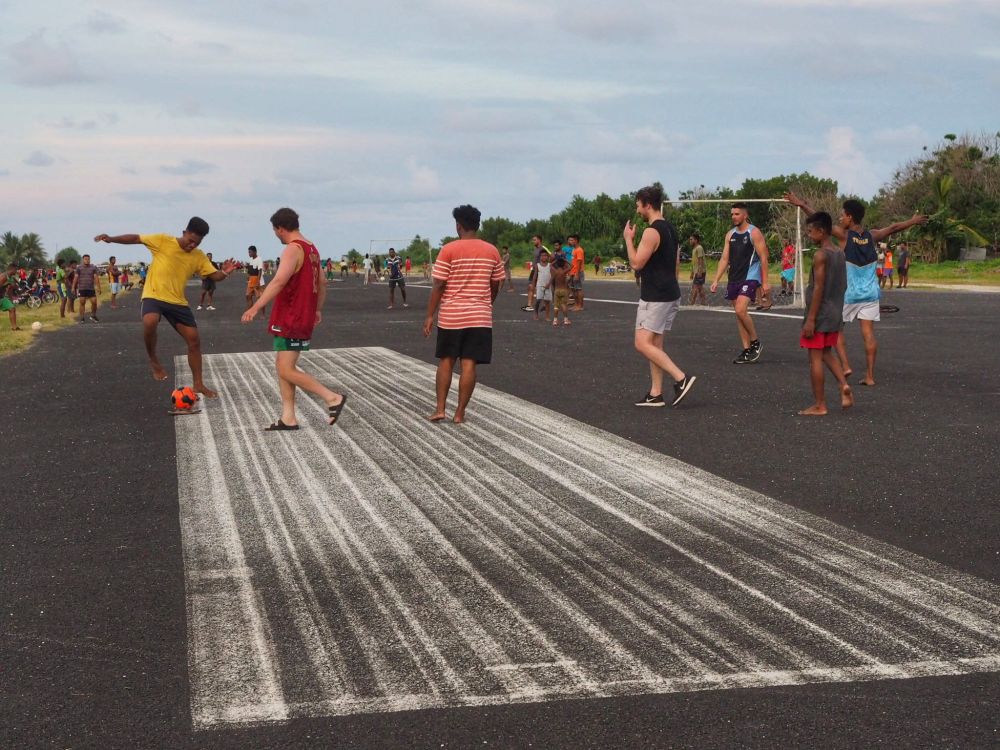
I loved every minute of my stay, but I’m afraid Tuvalu won’t be the next hot country. It was the most expensive place in the region to fly to, the only one with virtually no tourist attractions and the only place where I had to fight cockroaches in the hotel. But, for some inexplicable reason, it was my favourite of all the Pacific countries: nowhere else in the world had I experienced such a close-knit community and such a zest for life…
